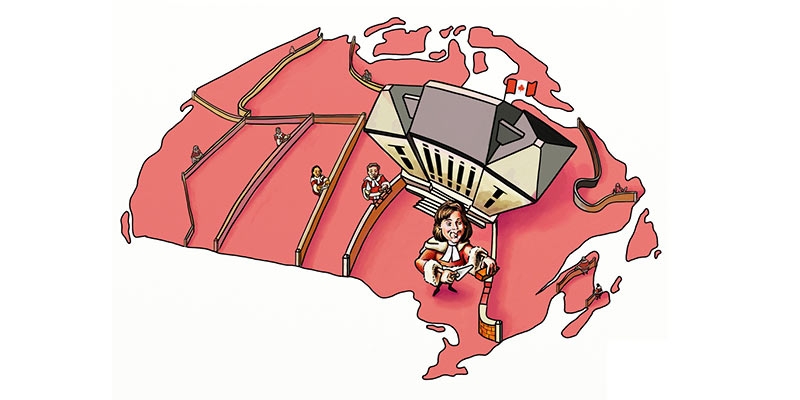Supreme Court green lights provincial trade barriers in ‘free the beer’ ruling
A recent Supreme Court ruling will limit the cross-country flow of beer — and other goods and services — for Canadians this Canada Day long weekend and beyond, confirms a report released Thursday by the Fraser Institute, an independent, non-partisan Canadian policy think-tank.
“At a time when Canadians are particularly sensitive to trade barriers, the Supreme Court of Canada has rejected the clear language of the Constitution and allowed provinces to essentially build trade walls,” said Bruce Pardy, a law professor at Queen’s University and author of Protecting Government from Free Trade: The “Free the Beer” Case at the Supreme Court of Canada.
The study argues that the Court, in its April ruling in R. v. Comeau, also known as the “Free the Beer” case, effectively nullified section 121 of the Constitution, which states that goods from any province shall be “admitted free into each of the other provinces.” Free trade, the Court said, cannot be allowed to impede government intervention in the economy, including regulation.
As a result, provincial governments may raise barriers to any products—including beer and wine—from any other province as long as they can identify a regulatory objective in the public interest.
Thus, provincial liquor monopolies and other anti-trade (i.e. protectionist) policies will be shielded from the intent of section 121 of the Constitution, so long as their “primary purpose” is not to restrict trade.
“This is another instance of the Court remaking the Constitution to reflect its own preferences,” Pardy said.
“The purpose of section 121 of the Constitution was to create one economic union in Canada and to limit the protectionist powers of the provinces, but Canada’s highest court has instead protected their interventionist ambitions.”
Main Conclusions
- The Canadian Constitution says that Canada is an economic union. Under section 121 of the Constitution Act, 1867, goods from one province shall be freely admitted into any other.
- The Supreme Court, in its decision in R. v. Comeau, declares otherwise. Provincial free trade, it says, cannot be allowed to impede the regulatory actions of provincial governments.
- In R. v. Comeau, the Court upholds fines imposed upon a resident of New Brunswick for buying beer in Quebec and bringing it into New Brunswick in excess of limits under New Brunswick law. The legislation creates a monopoly for the New Brunswick Liquor Corporation for the sale of alcohol in the province.
- Contrary to the words of section 121, the Supreme Court states that provinces are entitled to erect barriers that inhibit the flow of commerce as long as inhibiting trade is not their primary purpose.
- The Court concludes that the primary purpose of the New Brunswick legislation is to restrict access to any liquor not sold by the New Brunswick Liquor Corporation, not just liquor from another province. Therefore, it does not offend section 121.
- The Court expresses concern that free trade between provinces would undermine the ability of provincial governments to maintain supply management regimes, retail monopolies, and other regulatory programs.
- To protect government regulation, the Court places the burden of proof on complainants to show that re-stricting trade is the primary purpose of any legislation that has the effect of impeding the flow of goods from province to province.
- In preferring regulation and protectionist measures over free trade, the Court disregards both the plain meaning and historical intent of section 121 and substitutes its own vision of the proper role of government. It places aside the words of section 121 as incompatible with the functions that the Court believes the state should serve.

























